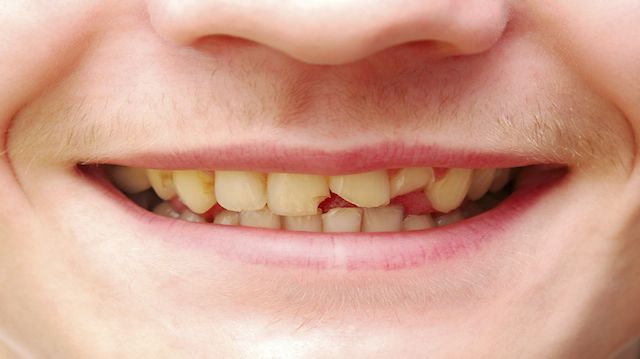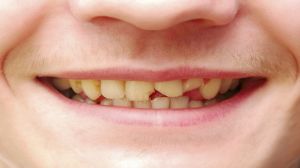
Unlike humans, the incisor teeth of rodents never stop growing. This fact gave rise to an idea by researchers to look into regenerating human teeth.
Comparing incisors to molars
Researchers from the University of Southern California (USC), in collaboration with the Molecular Laboratory for Gene Therapy and Tooth Regeneration in Beijing, and the Peking University School and Hospital of Stomatology in Beijing, looked at cells from rodents that become incisors and compared them to those that become molars, since those stop growing when the crown is formed.
“The major idea of the paper focused on how incisors and molars start with similar developmental processes but differ in tissue homeostasis due to the differing fates of their dental epithelial stem cells,” said Weston Grimes, a dental student involved in the study.
Reactivating stem cells may be the key
It turns out that the incisors of the rodents have a lifetime supply of epithelial and mesenchymal stem cells that provides for their continuous growth. In contrast, the stem-cell supply in the molar teeth remains dormant.
“If we can someday use this knowledge to reactivate those stem cells, then we could regrow part of the root,” explained lead author and associate dean of research, Yang Chai, chair in craniofacial molecular biology at USC’s Herman Ostrow School of Dentistry.
Discovering the method of reactivating these stem cells would mean understanding the complexity of how stem cell regulation pathways guide proteins in their development as specific anatomical structures.
Future dental work may involve regenerated living teeth
“In this study, we discovered how different signaling pathways work together to control stem cells,” said Chai. “We can use this information as a playbook for tooth regeneration.”
As Chai explained further, he feels these findings may someday lead to the ability of dentists to replace missing teeth with a living tooth that was regenerated in a laboratory.
Other dental research advances
In a separate study, involving the collaboration of multiple organizations, low-power lasers were used to reactivate the growth of dentin in damaged teeth. Scientists filled holes in the molars of lab rats and then some were treated using a low-powered laser while others were left alone and simply monitored. After 12 weeks, the laser-treated teeth were growing dentin, which is a natural protective layer on teeth.
Keep in mind that pulp stones formed instead of nice dentin bridges in the teeth. However, scientists feel confident this could be rectified with some tweaking to the focus of the laser.
 Laser light therapy may treat cavities in the future
Laser light therapy may treat cavities in the future
Light therapy is not a new practice. It has been applied to killing tumor cells, treating inflammation and pain, and boosting wound healing. It has also been linked with the regeneration of injured mammalian skin, lungs, hearts, and nerves.
“The field of light therapy has been around since the 60s, but it has been plagued by inefficacy, because very low doses do not have any effect while higher doses are detrimental,” said lead author Praveen Arany, investigator at the National Institutes of Health. “While this work outlines one precise molecular mechanism in a given context, the precise therapeutic window needs to be carefully worked out. Safety must be established before light therapy can become mainstream standard of care.”
Researchers in the study were from Harvard’s School of Engineering and Applied Sciences, Wyss Institute for Biologically Inspired Engineering, Leder Human Biology and Translational Medicine Program, as well as the Harvard School of Dental Medicine, the Harvard Medical School, and the Harvard-MIT Division of Health Sciences and Technology. Also involved were researchers from the National Institute of Dental and Craniofacial Research, the Wellman Center for Photomedicine, the Boston Children’s Hospital, and the New York University School of Medicine.
—The Alternative Daily
Sources:
http://www.cell.com/developmental-cell/abstract/S1534-5807(15)00139-2
http://stm.sciencemag.org/content/6/238/238ra69
http://www.futurity.org/rodents-incisors-teeth-904072
http://www.psmag.com/health-and-behavior/lasers-help-teeth-regrow-82777
http://www.slate.com/blogs/business_insider/2014/05/31/scientists_have_figured_out_how_to_regenerate_teeth_with_lasers.html
http://www.reuters.com/article/2014/05/30/us-science-teeth-idUSKBN0EA25920140530
https://www.thealternativedaily.com/diet-soda-is-just-as-bad-for-teeth-as-crack-cocaine-meth
https://www.thealternativedaily.com/exercising-outdoor-can-help-great-teeth
https://www.thealternativedaily.com/want-destroy-teeth-12-things
https://www.thealternativedaily.com/4-natural-ways-to-whiten-your-teeth
https://www.thealternativedaily.com/get-strong-bones-teeth-adrenals-bone-broth

